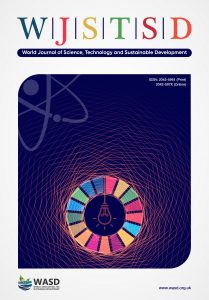Rising importance of remote learning in India in the wake of COVID-19: issues, challenges and way forward, Dr. Seema Joshi
 Dr. Seema Joshi
Dr. Seema Joshi
Department of Commerce, Kirori Mal College
University of Delhi, Delhi
India
Email: seemajoshi143@gmail.com
DOI: 10.1108/WJSTSD-10-2020-0079
Purpose: The present paper highlights the increasing importance of remote learning amidst the closure of educational institutions in India in the wake of COVID-19. This paper not only discusses critical issues and challenges that remote learning system in the higher education sector in India has been encountering amidst this pandemic but also sheds light on ways to deal with them.
Design/methodology/approach: The paper makes use of secondary sources of data along with descriptive and comparative approaches to examine the issues, challenges and way forward for a transition from face-to-face teaching to remote learning in the case of India.
Findings: The paper suggests that greater use of this alternative mode of learning can be made for checking “human capital deficit,” preventing loss of future earnings (because of loss of education) and also for preparing a future-ready digital workforce to surf the Industry 4.0 wave. Besides, this can help to achieve the goal of “Education for all” and Sustainable Development Goal 4 (SDG 4). Among others, concerted policies for bridging skill gaps, forging partnerships and following equity-oriented policies for ensuring learning outcomes seem to be the way forward for a resilient education system.
Originality/value: As per our knowledge, no such study on the use of remote learning covering the higher education sector in India amidst COVID-19 has been done so far.
Keywords: Remote learning; Higher education sector; Open and distance learning; Online learning; Skill development; Skill mismatches; Future-ready labor force.
Citation: Joshi, S. (2021), "Rising importance of remote learning in India in the wake of COVID-19: issues, challenges and way forward", World Journal of Science, Technology and Sustainable Development, Vol. 18 No. 1, pp. 44-63. https://doi.org/10.1108/WJSTSD-10-2020-0079

